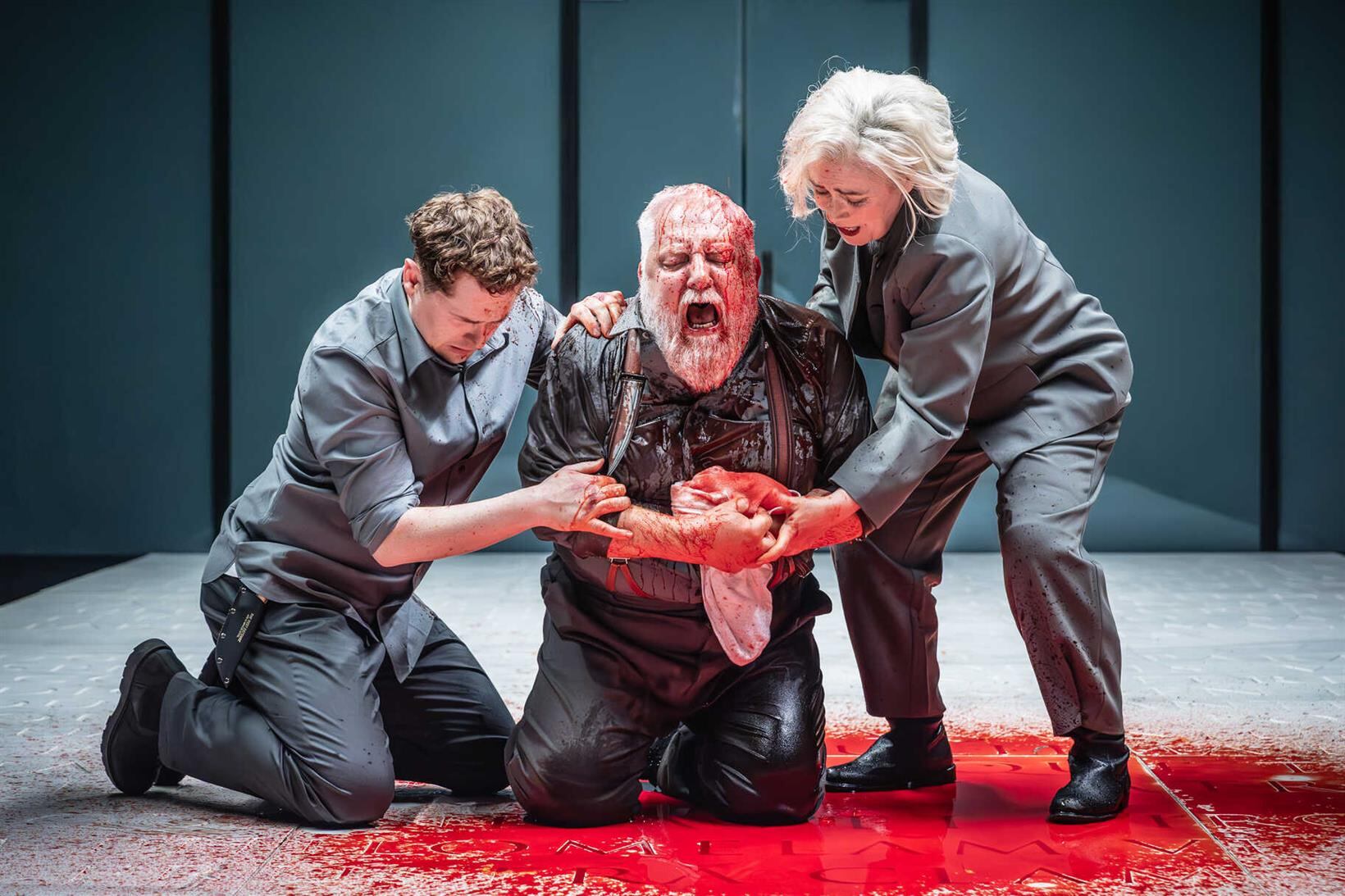Where is the limit of violence and blood for a work to lose its tragic sense and become a butcher shop gore? It happened with the film directed by Mel Gibson, The passionwhere the effort to reflect to the minimum detail the Calvary of Jesus Christ threw back to many spectators. The Royal Shakespeare Company (RSC) has decided these days to stage, once again, the bloodiest work of the English bard, Andronic Tito, and has turned the Stratford-Upon-up-up stage into a slaughterhouse, with drainage systems to evacuate the liters of false blood spilled during the performance.
“To put it in a phrase, you pass from meditating on the meaning of the tragedy in relation to human nature to calculate how many scrubber are capable of handling the actors of the cast between bambaline,” jokes the director of the work, Max Webster, in statements to the BBC.
Andrononic Tito is one of the first tragedies written by William Shakespeare, and surely the most violent. In his time (between 1591 and 1592), witnessed by a popular audience, success was remarkable. Later, Victorian refinement withdrew from the repertoire a work that touched an unnecessary bad taste. The twentieth century, however, with its own burden of violence, resurrected interest in this story.
General Tito Andrónico returns to Rome after defeating the Northern Goths. He brings Queen Tamora and her children. To celebrate his victory, sacrifices Alarbo, one of the children of the captive. When destiny distributes the letters again, and Tamora ends up becoming a new Empress of the Roman Empire, after his marriage to Saturnino, a revenge full of mutilations, blood and cannibalism is unleashed. The children of the Empress will violate Tito’s daughter, and will cut his hands and tongue so that he cannot tell his humiliation. The tragedy concludes with 14 murders, including that of Tito himself and that of the emperor, and with the two children of Tamora turned into meat from a cake that will be served at the final dinner.
Simon Russell Beale, who at 64 is one of the most prestigious actors in the RSC, convinced Webster to take the tragedy once again, and plays the role of Andrononic Tito. The scenario has an current air, but any express reference has been avoided to a current conflict, or falling into the abused cliché of using American soldiers instead of Romans. In any case, the proximity of massacres such as October 7 perpetrated by Hamas in Israel, Gaza’s War or Russian Ukraine invasion alen in each cruel scene in the tragedy.
“There are some works by the Shakesperian canon that touch the unacceptability, and Tito Andrónico is one of them. I do not understand so much violence, and I do not understand why the public feels so stimulated, excited and challenged by her. It is something implacable,” he explained to the newspaper The Guardian The actor, who accumulates in his professional career three Olivier awards, two Bafta and a Tony.
“They have come to build a sink around the stage (in order to evacuate the liters of spilled blood). For me, that is more terrifying than anything else. It reminds me of the prisons we saw in Syria after the fall of the Assad regime, and all the stories that those who came back to the rooms where they had been tortured,” Russell Beale reflects.
Over the years, there have been many puts in scenes of the work, with protagonists such as Laurence Olivier, Patrick Stewart, Brian Cox, David Bradley and even Anthony Hopkins in an adaptation to the cinema. But in most of them, acts of violence are more suggested than explained; It has even intended to soften cruelty with beautiful aesthetic effects, such as the red threads that hang instead of the amputated hands of Lavinia.
The new RSC production has summoned a large audience, magnetized by that inexplicable attraction that irrational violence continues to produce. And the company has been forced to alert possible dizziness and fainting. “It is important to launch that warning about the hardness of the content, so that people make an informed decision on whether or not to see the work. And then they fainted, that they fainally fainally,” the webster director tells the BBC.

